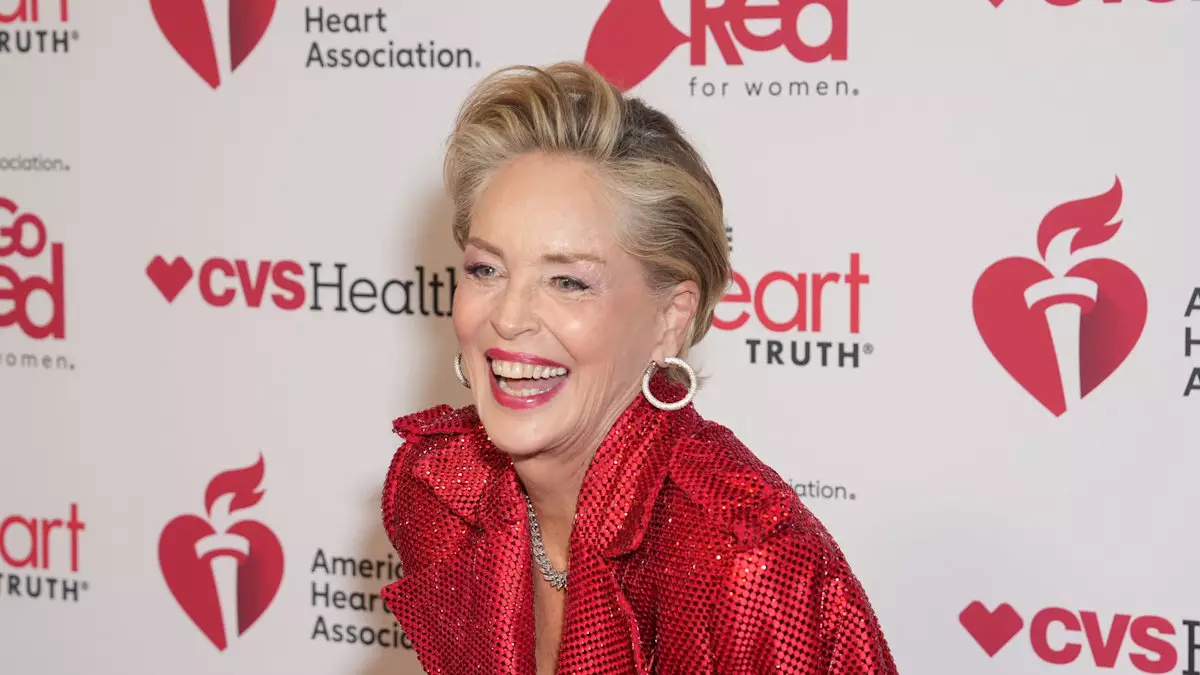Sharon Stone, a revered figure in Hollywood, has utilized her substantial platform to champion women’s health rights, especially after her life-altering experience with a stroke in 2001. Her passionate advocacy and personal narrative reveal both the challenges of navigating health adversities and the necessity of addressing the unique healthcare needs of women.
The American Heart Association’s Go Red for Women Red Dress Collection Concert provides a prime venue for celebrities to blend glamour with advocacy. In her dazzling red ensemble—a striking contrast to her radiant personality—Stone exemplified the event’s commitment to elevating awareness around cardiovascular diseases, particularly those affecting women. Her appearance was not merely about showcasing her fashion choices; it was a powerful statement reflecting her regained vitality, which she is now channeling into promoting a crucial cause.
Post-stroke, Stone’s gratitude for survival juxtaposes her previous life as a leading actress against the stark realities of health crises. The 66-year-old star has opened up about the profound psychological and career impacts of her health struggles, emphasizing the need for mental resilience and societal support after life-threatening events.
During the event, Stone articulated a strong message regarding the systemic neglect of women’s health issues. Her pointed remarks about the historical oversight in gynecological health serve to shed light on a critical yet often overlooked aspect of medicine. “An imbalance of hormones can cause a stroke,” she states, underscoring the urgent need for research tailored towards women’s specific health conditions.
Stone’s advocacy emphasizes that the medical realm has historically prioritized male health, leading to gaps in understanding women’s unique physiological needs. This oversight is damaging, not only to individual health outcomes but also to the broader societal understanding of health care. Stone’s urgency in this matter reflects the pressing need to foster more inclusive healthcare approaches that address both men and women effectively.
Reflecting on the long road to recovery, Stone describes an arduous process that involved intense personal challenges—including a significant loss of status in the competitive landscape of Hollywood. After her stroke, she faced an extended hiatus from acting, which left her feeling disconnected from an industry that rapidly evolved in her absence. “Everything changes, and people don’t really care about that person anymore,” she shares, poignantly capturing the existential struggle that many experience following life-altering health issues.
This sentiment resonates with countless survivors of medical traumas. The sobering realization that life moves on, even as one strives to reclaim their former identity, can create a deep sense of isolation. Stone’s journey teaches us that recovery is not just physical; it incorporates emotional healing and societal reintegration.
Stone’s openness about her health threats further cements her role not only as a survivor but also as an inspirational figure. In recounting her experiences—ranging from significant medical interventions to her altered sensory perceptions—she invites others to appreciate the profound complexity of recovery. Her mention of receiving insight from a Buddhist monk about reincarnation metaphorically illustrates her journey of regeneration, suggesting that even in her darkest hours, she found room for growth and rebirth.
Despite the pain associated with her experiences, Stone has demonstrated remarkable strength and tenacity. She has transformed her vulnerability into a rallying cry for others facing their battles, advocating for ongoing research, awareness, and most importantly, respect for women’s healthcare.
Sharon Stone’s evolution from actress to dedicated advocate exemplifies the potential to harness personal hardship into a movement for societal change. Her commitment to advocating for women’s health not only honors those who struggle with medical challenges but also challenges the societal norms surrounding healthcare. Stone’s journey serves as a beacon for those who may feel invisible, showing that it is possible to reclaim one’s voice, make an impact, and inspire others through resilience and advocacy.

